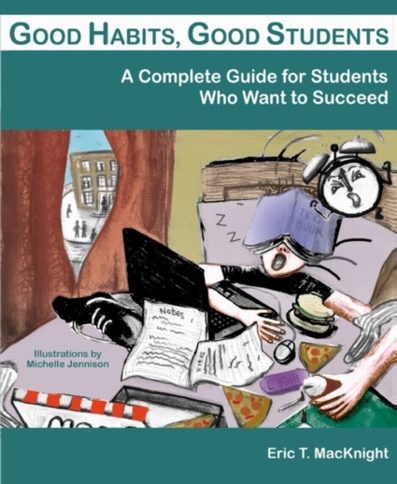Today a colleague began talking about his Grade 11 students. “They don’t take notes,” he said in exasperation. “Not a single one of them.”
Another colleague, overhearing us, joined in. “Isn’t that their problem?” he said. “By Grade 11 they should have figured this stuff out. We shouldn’t have to tell them to take notes and use their homework diaries.”
I wrote Good Habits, Good Students primarily for students. Teachers, for a variety of reasons, rarely teach the habits needed to succeed in school. Students are left on their own to “figure it out.” Unfortunately a huge number don’t figure it out, and they usually blame themselves for their academic disappointments: I’m lazy, I’m no good, I’m stupid. I wrote the book to help students acquire the good habits they need, and to convince them that they can be successful.
But I also wrote the book hoping that teachers and schools would realize that they should be teaching habits. If they did, students would achieve much better results on the “material” taught in school, and would believe in their ability to learn, and would be equipped to go on learning on their own when they are out of school. Grade 11, of course, is a bit late to begin.
Imagine what my colleagues would be saying, though, if their students had been learning and practicing good habits for years. It’s a dream, but it would not be particularly difficult or expensive to make it come true.

